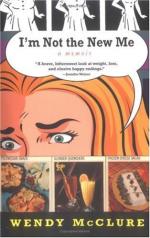A DRAMATIC POINT.
BY ROBERT BARR,
Author of “In the Midst of Alarms,” “A Typewritten Letter,” etc.
In the bad days of Balmaceda, when Chili was rent in twain, and its capital was practically a besieged city, two actors walked together along the chief street of the place towards the one theatre that was then open. They belonged to a French dramatic company that would gladly have left Chili if it could; but being compelled by stress of war to remain, the company did the next best thing, and gave performances at the principal theatre on such nights as a paying audience came.
A stranger would hardly have suspected, by the look of the streets, that a deadly war was going on, and that the rebels—so called—were almost at the city gates. Although business was ruined, credit dead, and no man’s life or liberty safe, the streets were filled with a crowd that seemed bent on enjoyment and making the best of things.
As Jacques Dupre and Carlos Lemoine walked together they were talking earnestly, not of the real war so close to their doors, but of the mimic conflicts of the stage. M. Dupre was the leading man of the company, and he listened with the amused tolerance of an elder man to the energetic vehemence of the younger.
“You are all wrong, Dupre,” cried Lemoine, “all wrong! I have studied the subject. Remember I am saying nothing against your acting in general. You know you have no greater admirer than I am, and that is something to say when you know that the members of a dramatic company are usually at loggerheads through jealousy.”
“Speak for yourself, Lemoine. You know I am green with jealousy of you. You are the rising star, and I am setting. You can’t teach an old dog new tricks, Carl, my boy.”
“That’s nonsense, Dupre. I wish you would consider this seriously. It is because you are so good on the stage that I can’t bear to see you false to your art just to please the gallery. You should be above all that.”
“How can a man be above his gallery—the highest spot in the house? Talk sense, Carlos, and I’ll listen.”
“Yes, you’re flippant simply because you know you’re wrong, and dare not argue this matter soberly. Now she stabs you through the heart—”
“No. False premises entirely. She says something about my wicked heart, and evidently intends to pierce that depraved organ; but a woman never hits what she aims at, and I deny that I’m ever stabbed through the heart. Say in the region or the neighborhood of the heart, and go on with your talk.”
“Very well. She stabs you in a spot so vital that you die in a few minutes. You throw up your hands, you stagger against the mantel-shelf, you tear open your collar and then grope at nothing; you press your hands on your wound and take two reeling steps forward; you call feebly for help and stumble against the sofa which you fall upon, and finally, still groping wildly, you roll off on the floor, where you kick out once or twice; your clinched hand comes down with a thud on the boards, and all is over.”




